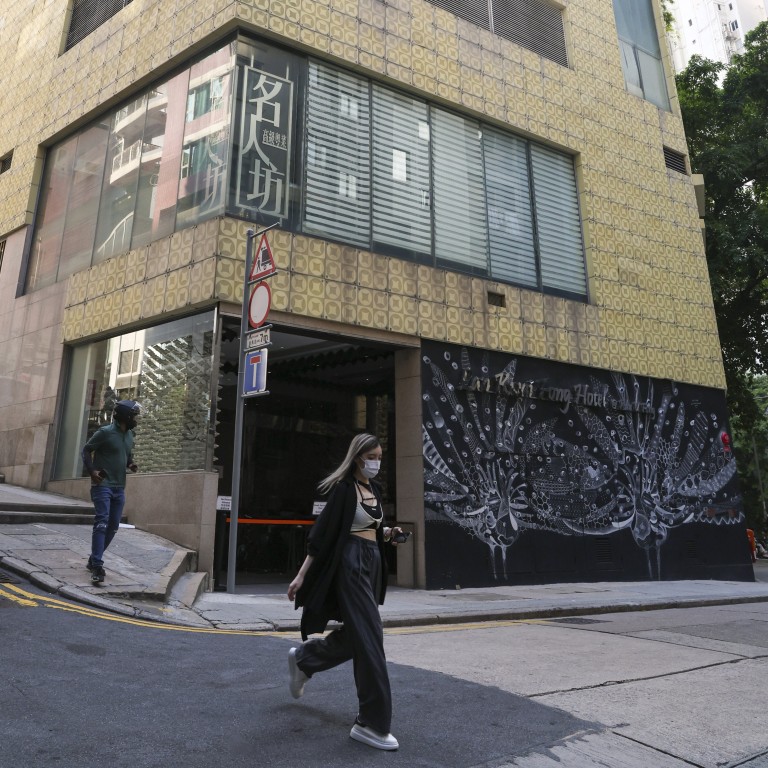
Coronavirus: Hong Kong detects cases of more transmissive Omicron subvariant but expert says chance of large outbreak is slim
- Health officials say a couple were found to be infected with the BA.2.12.1 subvariant at a community testing centre last Saturday
- Residents have no cause for concern as long as they have received their Covid-19 shots, professor says, adding city has a ‘strong immunity barrier’
A more transmissive Omicron subvariant could have entered the community for the first time, Hong Kong health authorities revealed on Friday, but a top government pandemic adviser said a large outbreak was unlikely as most people had already been vaccinated or previously infected with the coronavirus.
Health officials on Friday said a couple were found to be infected with the BA.2.12.1 subvariant at a community testing centre last Saturday, the 12th day after they arrived from San Francisco. They spent five days in the community after leaving their quarantine hotel in Lan Kwai Fong on May 10.
At the same time, a father and son, who were staying in the hotel after returning from Nepal on May 7, were also found to be infected with BA.2.12.1 on the fourth and fifth day of their quarantine. The two families had stayed on the 32nd and 33rd floors of the property, the Lan Kwai Fong Hotel @ Kau U Fong.
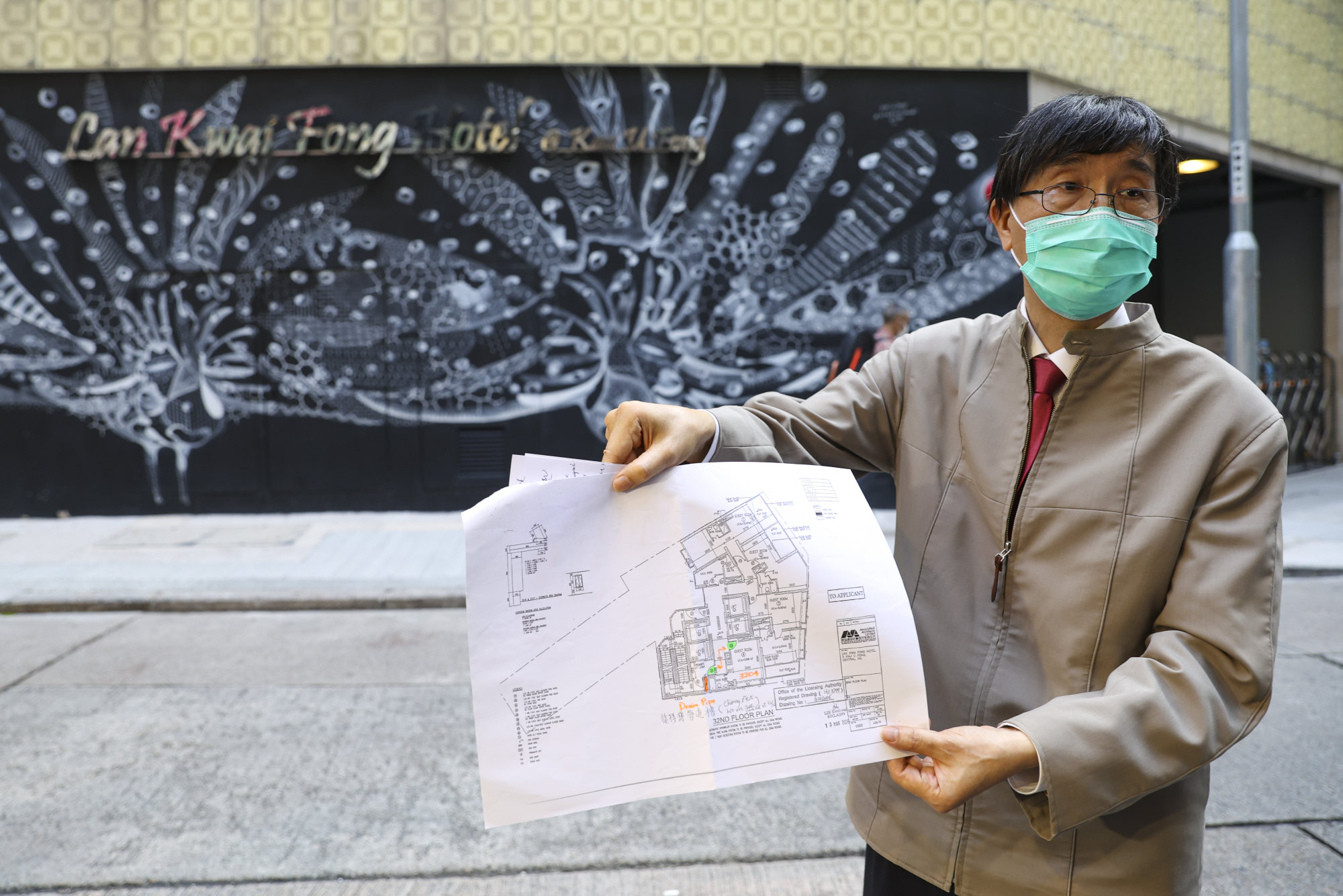
Dr Albert Au Ka-wing, principal medical and health officer at the Centre for Health Protection, said genome sequencing on virus samples from three of the travellers were identical, adding that it was possible the subvariant had spread in the community.
“This is the first time someone infected with BA.2.12.1 has tested positive in the community after completing quarantine at a hotel,” he said.
“They did visit some restaurants and removed their masks. But they stayed at home most of the time and wore masks on the streets.”
Unvaccinated Hong Kong students allowed to attend graduation after policy U-turn
The authorities issued compulsory testing notices to 11 places the couple had visited and would closely monitor any emergence of new cases linked to the subvariant.
Au said that while the subvariant was similar to BA.2, the dominant strain in the fifth wave of Covid-19 cases that recently wreaked havoc in Hong Kong, it was unknown whether it would infect those who had caught the earlier type.
“But there is no scientific data showing the subvariant will lead to higher risks of suffering from serious symptoms or deaths. According to the World Health Organization, it might be more transmissible than previous variants such as BA.1 or Delta,” he said.
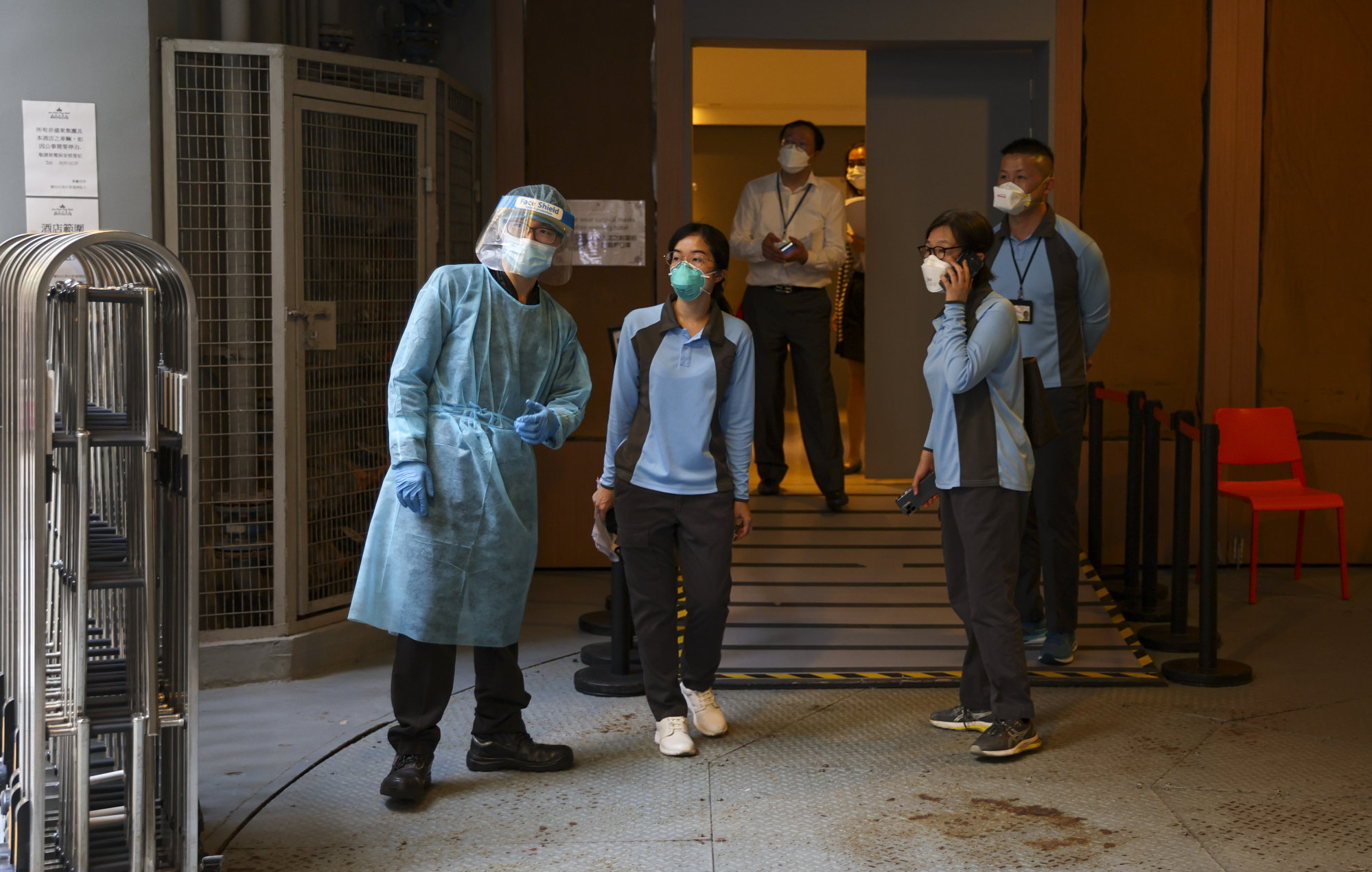
The development came as the city recorded 243 new Covid-19 infections, including 26 imported cases, as well as four more deaths related to the virus. The total tally of confirmed cases stood at 1,209,931, with 9,370 related fatalities.
Government pandemic adviser Professor Yuen Kwok-yung of the University of Hong Kong visited the hotel on Friday afternoon and carried out tests.
He said vertical transmission between the two rooms was likely to have occurred as the hotel’s pipe duct was blocked by concrete. However, it was not known which party was the infection source.
“The pipe duct has positive pressure, which means that in a smoke test, we saw air was flushing out [from the duct]. When the hot air reached the 33rd floor, it had nowhere to go and was flushed out on the 32nd or 33rd floor,” he said.
“When air carrying the saliva or faeces of an infected individual entered the pipe and leaked through some undetected gaps, the air could re-enter the back staircase, the hallway and eventually rooms 3204 or 3304 [where the families stayed].”
He suggested the hotel install an air purifier next to the back staircase’s fire door but evacuation of people there was unnecessary.
Yuen said the public had no cause for concern as long as they had received their Covid-19 vaccine shots and that the city now had a “strong immunity barrier”.
“If they have completed their vaccination, they will have a certain degree of protection against BA.2.12.1 … At least 70 to 80 per cent of our population will be protected, which will not lead to a large outbreak,” he said.
“Even with this cluster, the government can still gradually relax social-distancing measures so our lives can return to normal.”
Meanwhile, a joint scientific committee under the Centre for Health Protection published its latest recommendations on Friday, saying uninfected adults aged between 18 and 59 might choose to receive a fourth jab six months from the third after considering individual risk and benefit.
“A fourth dose of Covid-19 vaccine in younger populations may provide transient additional protection against infection and symptomatic diseases,” the committee said after holding an online meeting on Thursday.
Famed Hong Kong nightlife district buzzing again as Covid curbs are eased
According to the experts, those at higher risk of exposure to Covid-19, such as workers in healthcare settings or care homes, as well as people who have to travel, can choose to have a fourth dose. The same approach can be taken for those in the targeted age group who have recovered from infection.
The committee last month recommended people aged 60 or older receive a fourth dose, with most virus-linked deaths in the fifth wave involving this demographic.
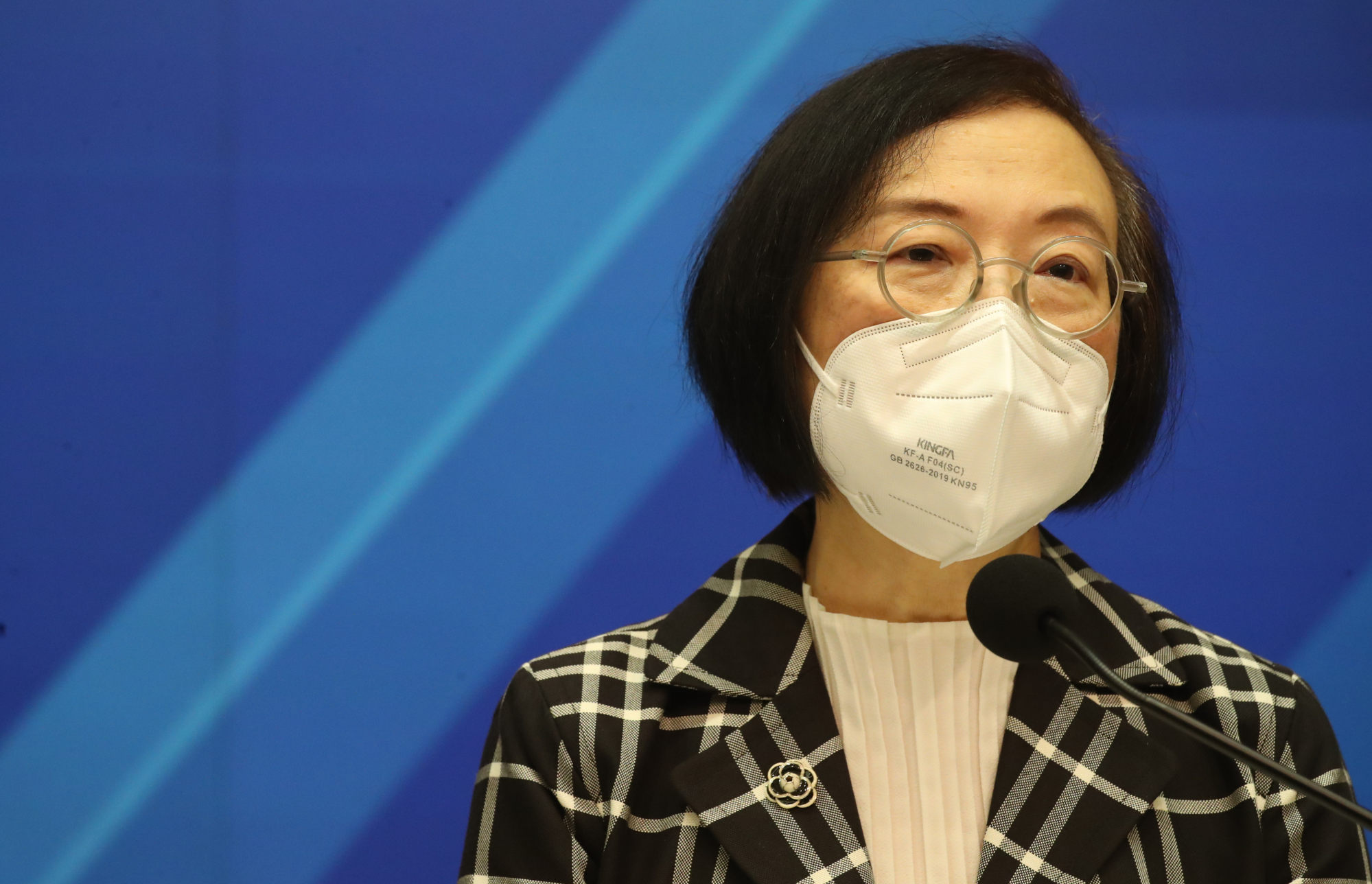
Separately, Secretary for Food and Health Sophia Chan Siu-chee doubled down on ramped-up rules for the Covid-19 vaccine pass, in line with Yuen, who said the scheme could only be lifted if 95 per cent of the population had received their third shot.
“Exempting age groups that do not benefit the most from vaccination will defeat the purpose of the vaccine pass policy,” she said in a newspaper opinion piece published on Friday. “It’s also unfair to those who are already vaccinated.”
She also said it would be inappropriate to label the policy as coercive or if certain age groups were given a choice to receive their third shot, as this would induce hesitancy among residents to get vaccinated.
She made the comments four days after HKU epidemiologist Benjamin Cowling and Theo Chan Tak-kwong from its department of pharmacology and pharmacy urged authorities to exempt non-elderly adults from the vaccine pass.
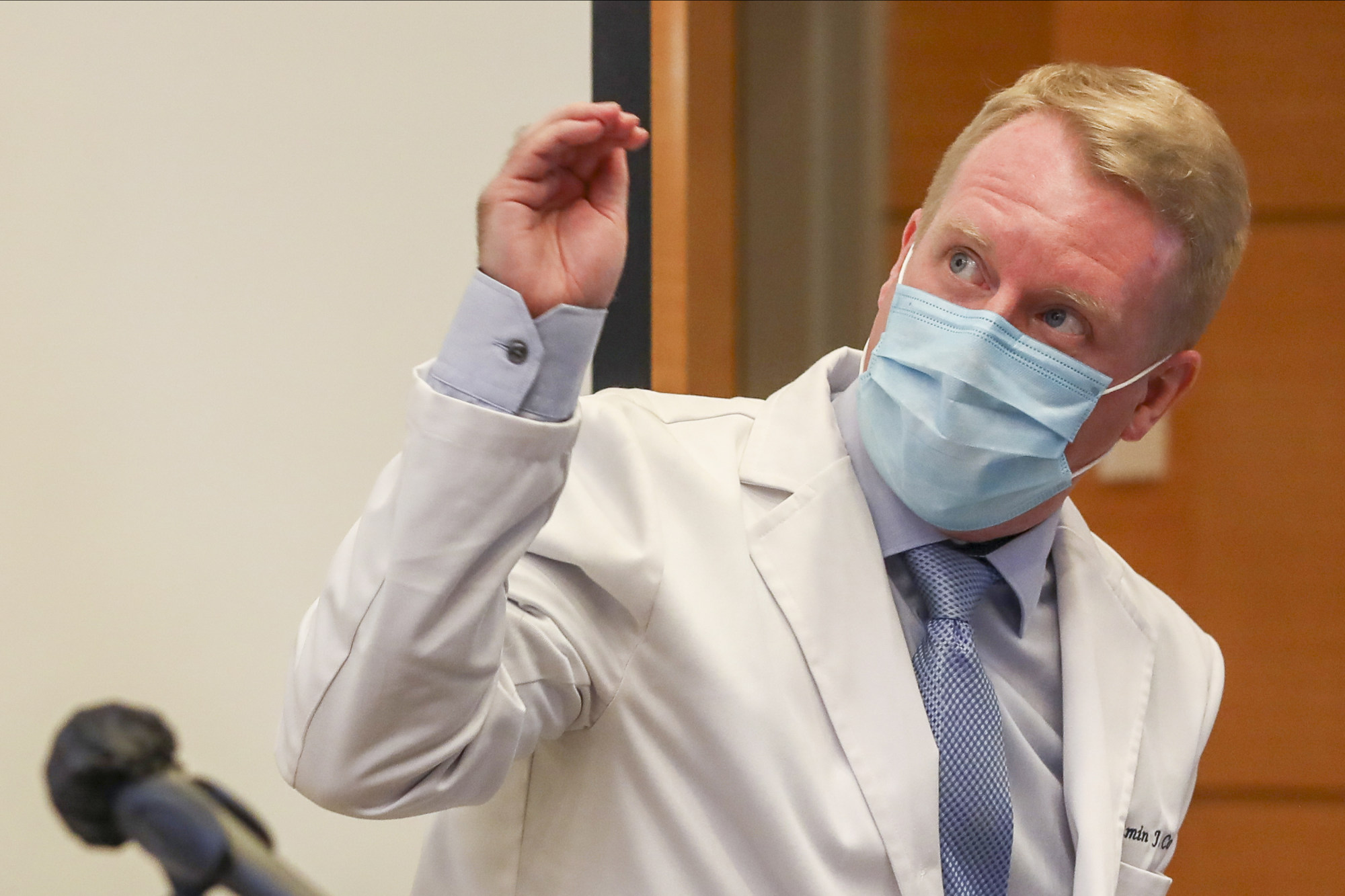
Cowling said the city was no longer in the “emergency” stage of the pandemic. He added this meant the key principle of informed consent needed to govern personal medical decisions even if the benefits of previous measures outweighed the harms.
But Sophia Chan said in her column: “When drawing up relevant anti-epidemic measures, the government has to consider building a shield for the community to protect the high-risk group, apart from striking a balance between personal benefits and risks.”
As of Friday, 52.5 per cent of the city’s population had been triple-vaccinated. About 1 million residents eligible for the third dose had not yet taken action as of the end of April, a senior official behind the inoculation drive said earlier.
Yuen said the vaccine pass scheme could only be lifted when 95 per cent of the population had received their third dose.
“The purpose of the vaccine pass is to protect unvaccinated people but not punish them,” he said in another commentary in the same newspaper, along with two other HKU scholars. “It is also difficult for operators to implement the policy if the pass is limited to certain age groups.”
Yuen also proposed a road map to normality in summer, saying the chance of Hong Kong facing another outbreak with the same magnitude as the fifth wave was very low unless a new variant emerged.
He and other scholars argued that as antibodies acquired from an infection or vaccination would decline over time, the period between building a barrier against severe conditions and full lifting of social-distancing curbs should not be too long.
“If there isn’t a full reopening before winter, a large-scale vaccination drive with boosters will very likely be needed in November, especially for the elderly and those with chronic illnesses. By that time, the public may be suffering from very strong pandemic fatigue,” the group stated.
With a mitigated approach, residents could gradually resume their normal lives and Covid-19 could be treated as a seasonal infection such as influenza, the scholars said.
Proposed measures from Yuen included cancelling the flight suspension mechanism and reducing the seven-day hotel quarantine requirement to five for fully vaccinated arrivals who test negative. The group said if no new variants entered the community, hotel quarantine could be scrapped.
They also suggested allowing fully inoculated close contacts to isolate at home, and replacing the daily announcement of infection figures with the number of deaths, patients in hospitals and severe cases.
But Yuen said the mask mandate could only be lifted in spring of 2023, after the winter flu season.



